Embedding Rust in STM32 C Projects
Rust has excellent C language interoperability. A little Rust with your C introduces how to embed Rust code into C projects.
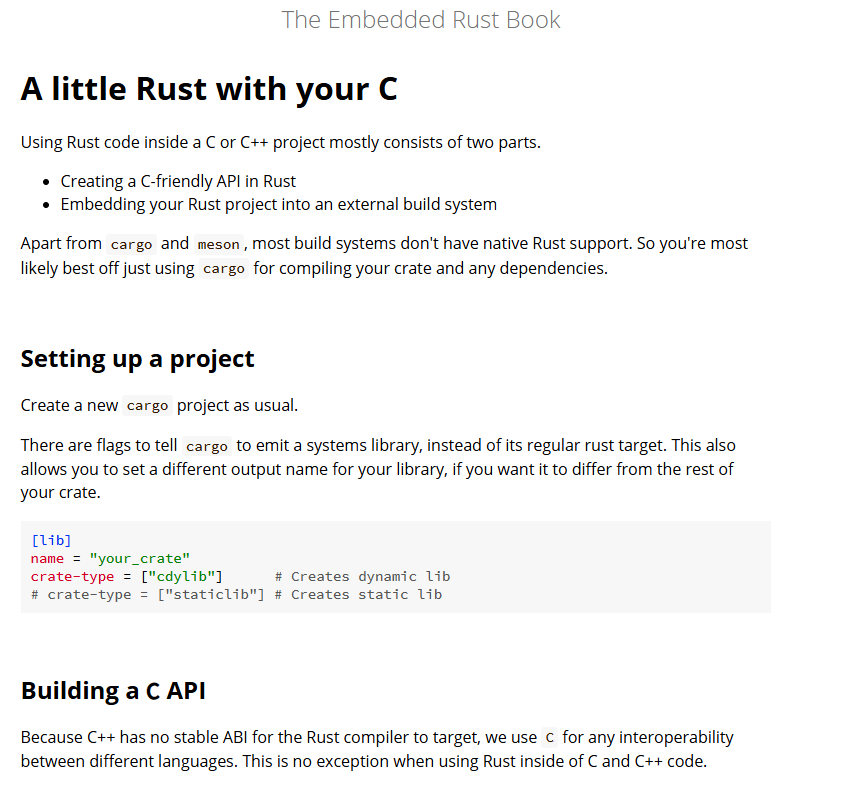
Simply put, you need to convert Rust types to C types, then generate libraries and header files to include and use in C projects.
But in microcontrollers, static compilation is needed, so you need:
crate-type = ["staticlib"]
Here we use the cargo command to create a simple lib:
cargo new lib_demo --lib
cd lib_demo
Then add to Cargo.toml:
[lib]
name = "lib_demo"
crate-type = ["staticlib"]
Add simple arithmetic operations (addition, subtraction, multiplication, division):
#![allow(unused)] #![no_std] fn main() { /// Addition operation /// Provide panic handler function for no_std environment #[panic_handler] fn panic(_info: &core::panic::PanicInfo) -> ! { loop {} } #[no_mangle] pub extern "C" fn add(a: i32, b: i32) -> i32 { a + b } /// Subtraction operation #[no_mangle] pub extern "C" fn subtract(a: i32, b: i32) -> i32 { a - b } /// Multiplication operation #[no_mangle] pub extern "C" fn multiply(a: i32, b: i32) -> i32 { a * b } /// Division operation (returns safe result, returns preset safe result 0 when dividing by zero) #[no_mangle] pub extern "C" fn divide(a: i32, b: i32) -> i32 { if b == 0 { 0 // Prevent divide by zero error } else { a / b } } /// Floating point division #[no_mangle] pub extern "C" fn divide_float(a: f64, b: f64) -> f64 { if b == 0.0 { 0.0 // Prevent divide by zero error } else { a / b } } }
Then write a calling header file:
#ifndef LIB_DEMO_H
#define LIB_DEMO_H
#ifdef __cplusplus
extern "C" {
#endif
// Integer operations
int add(int a, int b);
int subtract(int a, int b);
int multiply(int a, int b);
int divide(int a, int b);
// Floating point operations
double divide_float(double a, double b);
#ifdef __cplusplus
}
#endif
#endif // LIB_DEMO_H
Now you can call the written library from C language. Recommend supplementary reading ffi.
Embedding in STM32CubeIDE
STM32CubeIDE is the official development environment provided by ST. Here we use a CubeIDE project as an example. For STM32CubeIDE introduction, refer to STM32CubeIDE Quick Start Guide.
First, we open CubeIDE and select to create a new project:

Enter our chip stm32g8u6 and select:
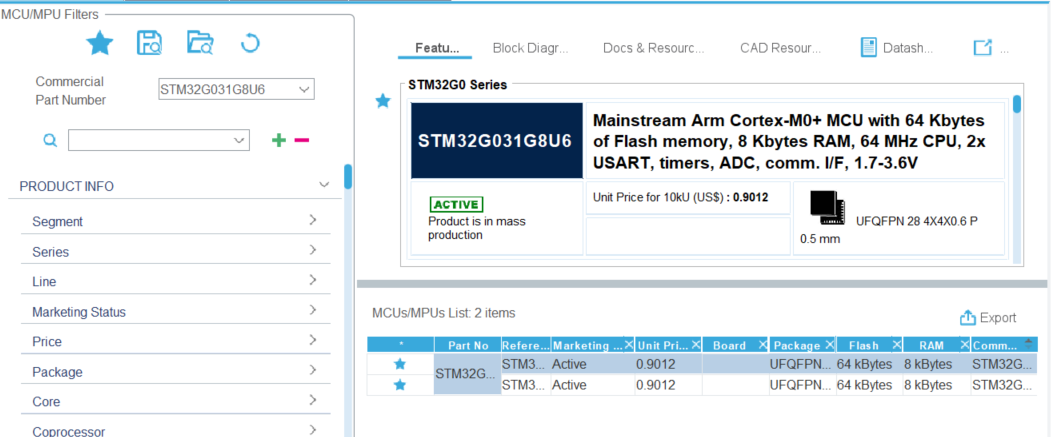
Enter project name and click finish to complete creation:
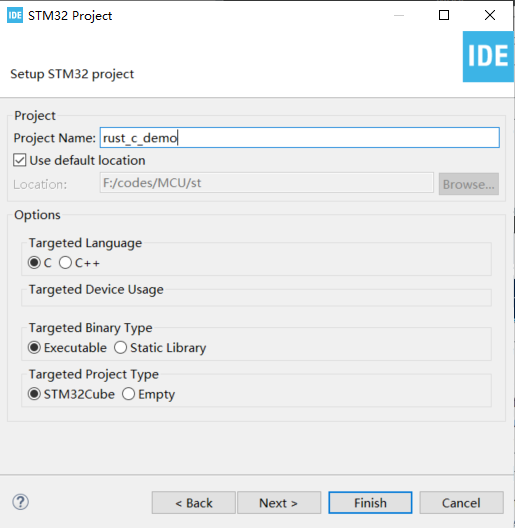
For this simple example, we use USART output, so only initialize USART2.
Select USART2 on the left and configure mode to Asynchronous mode, which will automatically configure pins:
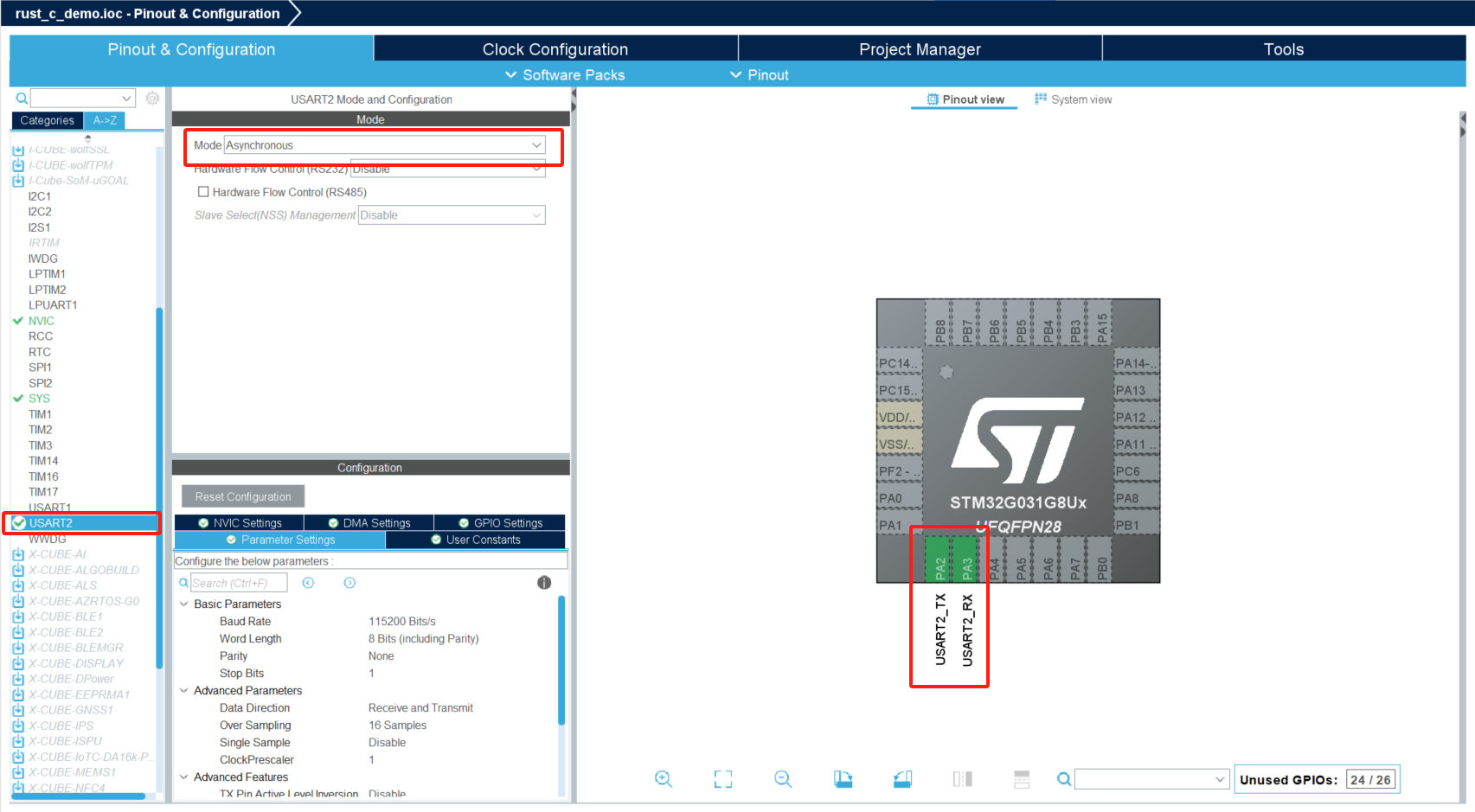
Then CTRL+S to save, CubeIDE will automatically generate code:

Add the following code to main.c to support printf:
#ifdef __GNUC__
#define PUTCHAR_PROTOTYPE int __io_putchar(int ch)
#else
#define PUTCHAR_PROTOTYPE int fputc(int ch, FILE *f)
#endif
PUTCHAR_PROTOTYPE
{
HAL_UART_Transmit(&huart2, (uint8_t *)&ch, 1,HAL_MAX_DELAY);
return ch;
}
Add floating point printf support in Project/Properties/C/C++ Build/Settings/Tool Settings:


Now an STM32 C template is complete. Add the lib_demo library. First compile lib_demo:
cargo build --release --target thumbv6m-none-eabi
Find the lib_demo.a file and add it along with lib_demo.h file to the Src and Inc directories of the STM32CubeIDE project:
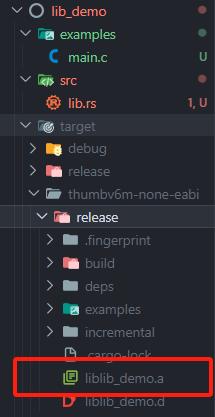
Right-click refresh in CUBEIDE to see the added files:

Finally, you need to add this library to the project:
In Project/Properties, select and add the library:
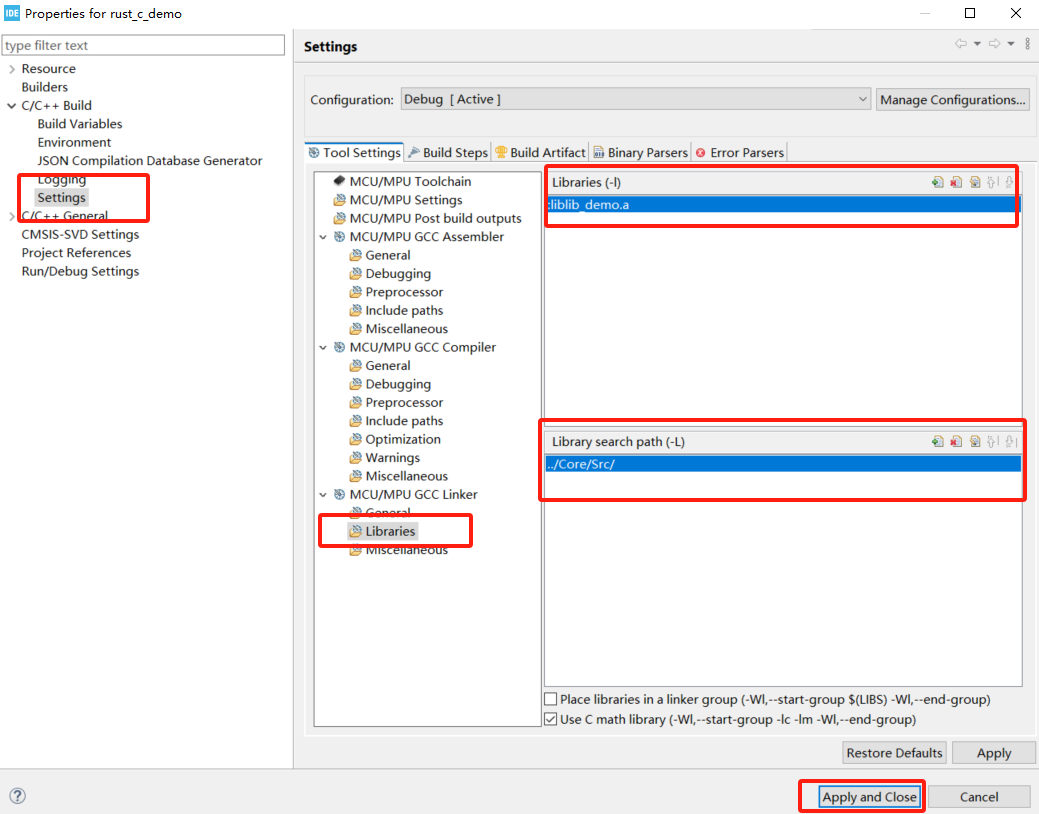
Add to main.c:
#include "lib_demo.h"
...
int main(void)
{
...
/* USER CODE BEGIN 2 */
int a = 10, b = 5;
printf("Integer operations:\n");
printf("%d + %d = %d\n", a, b, add(a, b));
printf("%d - %d = %d\n", a, b, subtract(a, b));
printf("%d * %d = %d\n", a, b, multiply(a, b));
printf("%d / %d = %d\n", a, b, divide(a, b));
// Test divide by zero
printf("%d / %d = %d (divide by zero protection)\n", a, 0, divide(a, 0));
// Test floating point division
double x = 10.5, y = 2.5;
printf("\nFloating point operations:\n");
printf("%.2f / %.2f = %.2f\n", x, y, divide_float(x, y));
printf("%.2f / %.2f = %.2f (divide by zero protection)\n", x, 0.0, divide_float(x, 0.0));
/* USER CODE END 2 */
...
}
Click debug and run to see the output in the serial terminal:

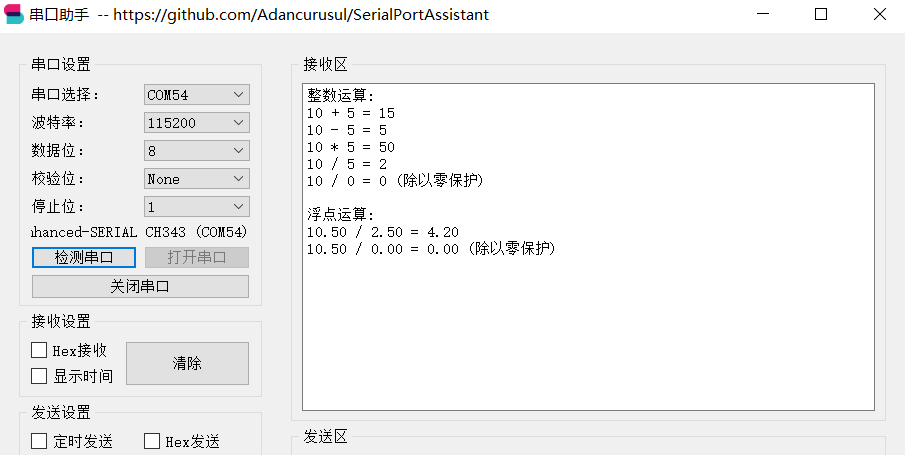
This completes embedding a Rust library into an STM32 C language project.
Summary
This is just using the simplest example for illustration. In actual applications, you can implement complex logic that requires safety guarantees in Rust, then embed it into C projects. For example, protocol encoding/decoding, calculations, etc.